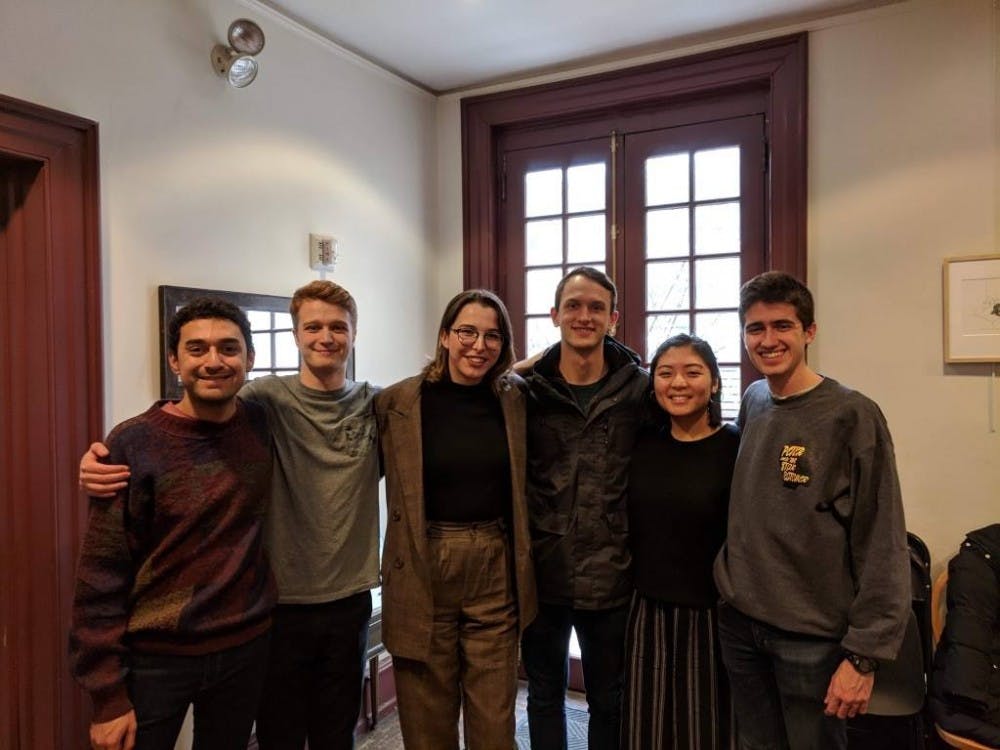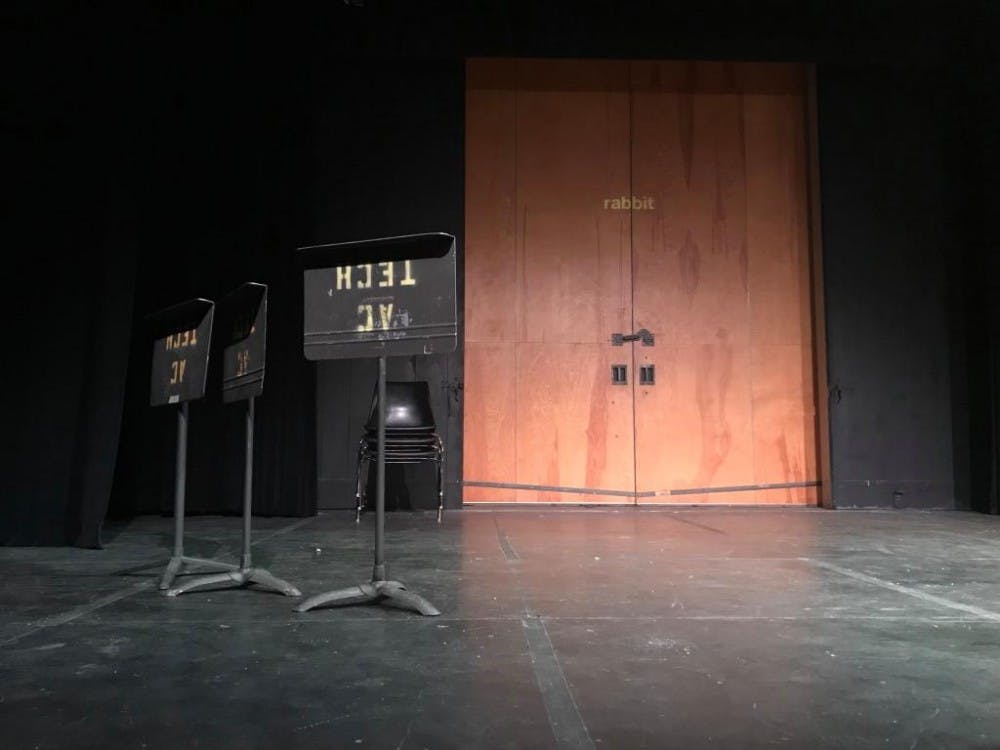Rabbit opens with a monologue by protagonist Morgan, remembering her challenge to fate as a child—“…God, if you’re going to kill me, kill me … But before you do, you have to give me warning … No—if you’re going to kill me, send me a sign. An omen. Send a rabbit and a raven to my front lawn at the same time one morning, and then I’ll know.”
As a young girl, after losing her friend to appendicitis, Rabbit writer Samantha Friskey (C '20) too dared to confront God—“I told him, ‘you can only kill me if you send me a sign.’” Though the similarities between Samantha's own life and Rabbit’s plot end here, her treatment of love and loss clearly has roots in a nuanced understanding of tragedy and hope.
Rabbit follows parents Morgan and Ian as they cope with the loss of one of their twin daughters to gun violence, during a school shooting. The one–act production cuts back and forth in time—the audience watches Morgan’s pregnancy, Ian driving their children to school, and Morgan and Ian finding out their daughter has died.
In speaking of her choice to have Rabbit unfold non–chronologically, Samantha says, “If you put a funny moment right next to a horrible moment, it’s easier to see what you’ve lost.”
Samantha began writing plays at the start of her freshman year in college, and has been honing her practice ever since. As the recipient of the Penn Plays Fellowship, Samantha developed Rabbit over the course of roughly a semester. Each year, the Kelly Writer’s House and Penn’s Theatre Arts Program cosponsor a Playwriting Fellowship to which students submit their work at the start of the fall semester. Samantha was announced as this year’s winner in November.
The first public reading of the piece was held as a workshop read–through at the Kelly Writer’s House in early December. Between December and February, Samantha refined her piece, working closely with Playwriting Mentor & Dramaturg Jacqueline Goldfinger, Director David O’Connor, and actors/fellow Penn students Bella Essex (C '19) and Elias Kotsis (C '19). Samantha describes the rehearsal process as crucial, and notes that hearing her words spoken aloud permitted her to successfully imbue tragedy with moments of humor and relief.

In discussing the structure of Rabbit, Samantha emphasizes the importance of “pairing” to the play’s structure—Morgan and Ian, their twin daughters, past and present. Samantha says, “When you have a play about partnerships you can have a play about absences, and what happens when one person is missing. In the opening monologue, Morgan sets this up by saying, ‘when I was a child I thought doom was signalled by an uncommon pairing, by a rabbit and a raven.’ In reality, the biggest disaster for her is when the pairing of her two daughters is separated. That’s why the play is called Rabbit, and not A Rabbit and Raven." Samantha's keen understanding of relationships and connection gives Rabbit life and makes Morgan and Ian’s loss feel all the more real.
Rabbit closes with a moment from Morgan and Ian’s past, a moment in which both of their daughters are still alive. Morgan stands onstage, facing the audience that sits in the place of her daughters. Morgan says, “I used to be afraid of rabbits. Silly, I know. But—but other people, other people like you, Fiona, like you, Emma—a lot of people love rabbits … for luck, they’d carry around rabbit feet, and I admit girls, I was tempted to partake, but giving you detached animal appendages seemed a little morbid, so I—I modified.”
Morgan hands her daughters stuffed rabbit keychains, and continues on. “If you ever get scared, wherever you are, whatever’s happening, I want you to squeeze this little rabbit … And when you’re scared, and when you squeeze it, know that I’m squeezing you right back. And that soon enough, you’ll be home, and I’ll squeeze you for real. I’ll give you the biggest hug of your life—because your mother loves you more than you can ever imagine.”
Samantha leaves her audience with a poignant moment of love there and gone, with a bleeding of past into present.

